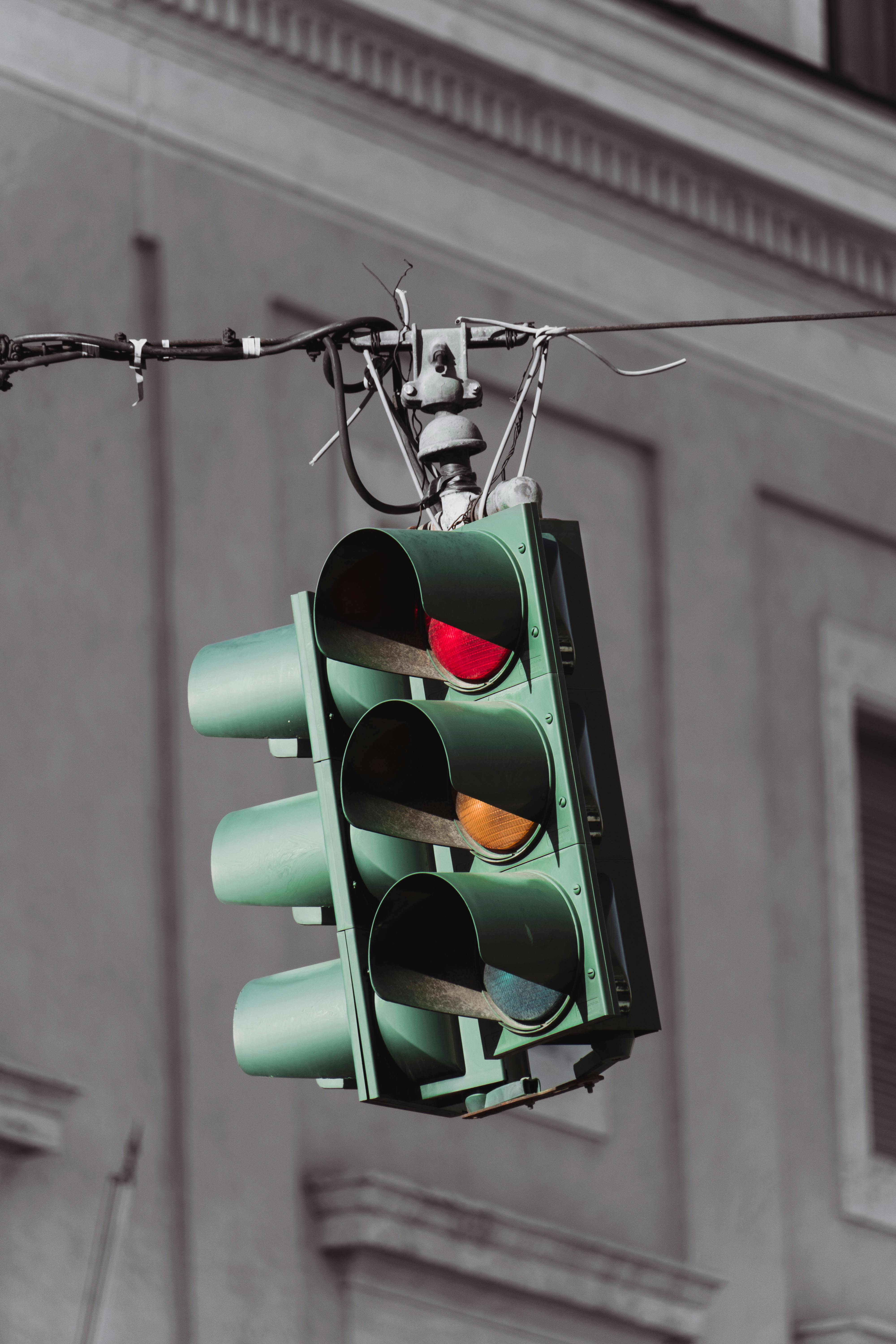In the ever-evolving world of digital finance, biitland.com stablecoins are paving the way towards a more secure and streamlined monetary future. With the rise of cryptocurrency volatility concerns, the quest for stability has never been more crucial. But how exactly do biitland.com stablecoins revolutionize the way we think about digital transactions and savings? Unlock the Future of Finance by exploring how these digital assets maintain their peg to traditional currencies while offering the flexibility and potential of crypto innovations. Are you ready to dive into the benefits of reduced volatility and enhanced security in your financial dealings? Discover how the integration of biitland.com stablecoins into everyday commerce and investment strategies can transform your approach to digital wealth. Stay ahead of the curve in a world where financial security and innovation meet. Let’s delve into the dynamics of stablecoin utility and how biitland.com is at the forefront of this exciting financial revolution. Join us on this enlightening journey to demystify the complexities of stablecoins and reveal their potential to reshape the financial landscape.
What is Biitland.com? An Introduction to Revolutionizing Stablecoin Use

Unlock the Future of Finance: How Biitland.com Enhances Stablecoin Utility
In today’s digital age, the financial landscape is undergoing a remarkable transformation, with cryptocurrencies and blockchain technology at the forefront of this change. Among these innovations, stablecoins have emerged as a significant player due to their ability to combine the instant processing and security of cryptocurrency transactions with the stable valuations of fiat currencies. A standout in this evolving market is Biitland.com, a platform that is revolutionizing the use of stablecoins.
What is Biitland.com?
Biitland.com is a cutting-edge online platform designed to enhance the utility and accessibility of stablecoins. It serves as a bridge between traditional financial systems and the burgeoning world of cryptocurrencies, offering a robust environment for managing and transacting with stablecoins. The platform focuses on providing secure, scalable, and user-friendly solutions for both individual users and businesses.
Core Features of Biitland.com
Enhanced Security: Biitland.com employs state-of-the-art security measures to ensure the safety of its users’ assets. This includes multi-layer encryption, two-factor authentication, and continuous security audits.
User-Centric Design: The platform boasts a sleek, intuitive interface that simplifies the process of buying, selling, and managing stablecoins. This is particularly beneficial for those new to the world of digital currencies.
Real-Time Transactions: Biitland.com supports instant stablecoin transactions, facilitating real-time payments and transfers. This is crucial for businesses and individuals who need immediate transaction capabilities.
Wide Range of Stablecoins: The platform does not limit its offerings to popular stablecoins like USDT or USDC. It also includes a variety of other stablecoins, providing users with more options and flexibility.
Integration with Traditional Banking: Biitland.com offers seamless integration with traditional banking systems, making it easier for users to switch between fiat and digital currencies.
How Biitland.com is Revolutionizing Stablecoin Use
Biitland.com is not just about providing a platform for transactions; it’s about creating a comprehensive ecosystem that addresses the current challenges in the stablecoin market. Here are some ways Biitland.com is making a difference:
Increasing Stablecoin Accessibility: By simplifying the process of stablecoin transactions and offering a user-friendly platform, Biitland.com is making digital currencies more accessible to a broader audience. This is key to increasing the adoption of stablecoins across various sectors.
Promoting Financial Inclusion: Stablecoins are an excellent tool for financial inclusion, and Biitland.com leverages this by providing services that cater to underbanked and unbanked populations. This includes remittances, micro-loans, and other financial services typically not available to these groups.
Fostering Global Commerce: With its ability to facilitate instant, cross-border transactions with stablecoins, Biitland.com is helping businesses expand their operations
Exploring Biitland.com’s Unique Approach to Stablecoin Stability

Exploring Biitland.com’s Unique Approach to Stablecoin Stability
In the rapidly evolving world of cryptocurrency, stablecoins have emerged as a cornerstone for transactions and investments due to their reduced volatility compared to typical cryptocurrencies like Bitcoin and Ethereum. Among the platforms making significant strides in this area is Biitland.com, whose innovative approach to ensuring stablecoin stability is drawing attention from investors and financial experts globally.
What Sets Biitland.com Apart in Stablecoin Stability?
Biitland.com utilizes a multifaceted strategy to maintain the peg of its stablecoins, primarily focusing on collateralization, algorithmic mechanisms, and real-time market monitoring. Unlike traditional stablecoins, which are typically pegged to a single fiat currency like the USD, Biitland.com introduces a basket of assets as a base for its stablecoins. This basket includes multiple fiat currencies, commodities, and even other cryptocurrencies, providing a diversified buffer against market volatility and economic fluctuations.
Moreover, Biitland.com incorporates advanced algorithmic models that continuously analyze the market conditions. These algorithms adjust the stablecoin supply dynamically, countering the effects of market pressure and ensuring that the stablecoin’s value remains consistent regardless of external stresses.
Unlock the Future of Finance: How Biitland.com Enhances Stablecoin Utility
The utility of stablecoins lies in their ability to provide a stable medium of exchange and a safe store of value, characteristics that are critical in the unpredictable realm of cryptocurrencies. Biitland.com enhances this utility by integrating its stablecoins into a broader ecosystem, offering users seamless transactions across various financial platforms.
Enhanced Payment Systems
One of the pivotal enhancements Biitland.com brings to the table is the integration of its stablecoins with payment systems across the globe. This integration allows users to make everyday purchases, pay bills, or transfer money internationally without the hefty fees associated with traditional banking systems. Moreover, the use of blockchain technology ensures that these transactions are not only faster but also more secure than conventional payment methods.
Increased Accessibility and Financial Inclusion
Biitland.com is committed to increasing financial inclusion by making its stablecoins accessible to a broader audience. By simplifying the process of buying, storing, and using stablecoins, Biitland.com enables individuals in underbanked regions to access essential financial services, thus fostering greater economic participation and stability.
Biitland.com Stablecoins: A Detailed Analysis
Biitland.com’s stablecoins are engineered to withstand the test of volatile financial climates, thanks to their robust foundation and continuous monitoring. Each stablecoin issued on the Biitland.com platform is backed by a reserve of assets that exceeds its market value, ensuring that redemption demands can be met promptly without destabilizing the coin’s value.
Furthermore, the transparency with which Biitland.com operates adds an extra layer of security and trust. Regular audits and public reports ensure that all stakeholders are informed of the status of the reserves and the health of the stablecoin ecosystem, promoting greater confidence among users and investors
How Does Biitland.com Enhance the Utility of Stablecoins?

Unlock the Future of Finance: How Biitland.com Enhances Stablecoin Utility
In the ever-evolving landscape of digital finance, stablecoins have emerged as a cornerstone, offering the benefits of cryptocurrency without the volatility typically associated with digital assets like Bitcoin or Ethereum. Biitland.com, a pioneering financial platform, has taken significant strides to enhance the utility of stablecoins, propelling the future of finance into new realms of stability and accessibility.
Introduction to Stablecoins and Biitland.com
Stablecoins are cryptocurrencies designed to maintain a stable value by being pegged to a reserve asset, such as the US dollar or gold. This stability makes them an ideal medium for daily transactions, savings, and hedging against crypto market volatility. Biitland.com, recognizing the potential of stablecoins, has developed innovative solutions to maximize their utility, ensuring that these digital assets serve a broader range of financial activities more efficiently.
Advancing Payment Systems
One of the primary enhancements Biitland.com offers is the integration of stablecoins into everyday payment systems. By fostering partnerships with global merchants and payment processors, Biitland.com enables users to make purchases directly using stablecoins. This not only simplifies transactions but also reduces transaction fees and processing times compared to traditional banking systems. The seamless transaction experience is a key factor in driving the adoption of stablecoins for routine financial operations.
Enhanced Security Features
Security concerns are paramount in the realm of digital finance. Biitland.com addresses these concerns by implementing robust security protocols that ensure the safety of users’ assets. Advanced encryption, two-factor authentication, and continuous security audits are part of Biitland.com’s strategy to protect against fraud and cyber threats. These enhanced security measures build trust and encourage the use of stablecoins as a secure alternative to conventional banking.
Facilitating Global Remittances
Biitland.com also taps into the potential of stablecoins to revolutionize the remittance industry. By utilizing stablecoins, the platform enables users to send and receive money across borders without the hefty fees and delays associated with traditional remittance services. This is particularly beneficial for expatriates and businesses that need to make international transfers regularly, offering them a cost-effective and instantaneous method for global financial exchanges.
Promoting Financial Inclusion
Another significant aspect of Biitland.com’s approach is the promotion of financial inclusion. By providing access to stablecoin-based financial services, Biitland.com reaches unbanked and underbanked populations, who may not have access to traditional banking facilities. This accessibility is instrumental in leveling the financial playing field and empowering more people with the tools for economic participation and growth.
Investment and Savings Platforms
Beyond transactions and remittances, Biitland.com enriches the utility of stablecoins through investment and savings platforms. Users can leverage stablecoins to invest in a range of assets, from real estate to stocks, all within the Biitland.com ecosystem. Additionally, the platform offers interest-bearing accounts where users
The Role of Biitland.com in the Future of Decentralized Finance

The Role of Biitland.com in the Future of Decentralized Finance
Decentralized finance (DeFi) represents a shift from traditional, centralized financial systems to peer-to-peer finance enabled by decentralized technologies built on blockchain. At the vanguard of this revolution is Biitland.com, a platform that is poised to redefine the accessibility and utility of stablecoins. As the digital economy continues to evolve, understanding platforms like Biitland.com and their contributions to DeFi becomes crucial.
Enhancing Stablecoin Utility through Biitland.com
Stablecoins have emerged as a pivotal element in the DeFi ecosystem due to their ability to provide stability in the typically volatile cryptocurrency market. Biitland.com leverages this stability by offering innovative financial services that integrate stablecoins into everyday banking, lending, and investment products. This integration not only enhances the utility of stablecoins but also broadens their appeal to a wider audience, including those skeptical of typical cryptocurrencies’ price swings.
Biitland.com has developed a platform where users can easily convert their digital assets into stablecoins, use these stablecoins to earn interest, or borrow against them with minimal risk of liquidation. This functionality enhances the liquidity of digital assets and encourages a more robust participation in the DeFi space. Moreover, the platform’s emphasis on user-friendly interfaces ensures that even those with minimal technical knowledge can benefit from these services, thereby expanding the reach of DeFi solutions.
Secure and Transparent Transactions
Security and transparency are at the core of Biitland.com’s operations. By utilizing blockchain technology, the platform ensures that all transactions are secure, transparent, and immutable. This security feature is vital in building trust with users and is fundamental in the adoption of DeFi platforms. Biitland.com employs advanced encryption technologies and smart contracts that automate transactions and enforce contract terms, reducing the risk of fraud and error.
Regulatory Compliance and Stability
Understanding the importance of regulatory compliance, Biitland.com operates in a manner that adheres to the laws and regulations of each jurisdiction in which it operates. This compliance is crucial for ensuring the long-term viability of the platform and for protecting users from potential legal repercussions. Additionally, by focusing on stablecoins, Biitland.com mitigates the regulatory risks often associated with other cryptocurrencies, which can face harsher scrutiny and volatile regulatory responses.
The Future Outlook of Biitland.com and DeFi
The future of DeFi and platforms like Biitland.com looks promising. As more users and institutions recognize the benefits of decentralized financial services, the adoption rate of these platforms is expected to increase. Biitland.com is at the forefront of this shift, continuously innovating and improving its offerings to meet the growing needs of its users.
The platform’s ability to provide stable, secure, and compliant DeFi solutions positions it as a leader in the space, potentially setting standards for others to follow. Furthermore, as the global financial landscape becomes increasingly digitized, the demand for platforms that can
Biitland.com’s Impact on Global Remittance: A Game Changer?

Biitland.com’s Impact on Global Remittance: A Game Changer?
In the evolving landscape of global finance, digital platforms like Biitland.com are emerging as pivotal players. With its innovative approach to utilizing blockchain technology, Biitland.com is redefining the remittance sector, offering a promising solution that could potentially transform how money is sent across borders. This analysis delves into how Biitland.com impacts global remittance and explores whether it truly is a game-changer in the field.
Revolutionizing Remittance with Blockchain Technology
Biitland.com leverages blockchain technology to facilitate remittances, ensuring transactions are not only faster but also more secure and less costly compared to traditional methods. Blockchain’s decentralized nature eliminates the need for intermediaries, which traditionally contribute to higher transaction fees and slower processing times. This advancement is particularly beneficial for users in developing countries where remittance fees can be prohibitively high.
Biitland.com’s platform allows users to send money across borders in a matter of minutes, not days, with significantly reduced transaction fees. This efficiency is a major boon for the global remittance market, which the World Bank reported as having reached $702 billion in 2020.
Unlock the Future of Finance: How Biitland.com Enhances Stablecoin Utility
Stablecoins, which are cryptocurrencies designed to minimize the volatility of the price of the stablecoin, relative to some “stable” asset or basket of assets, are at the heart of Biitland.com’s financial ecosystem. By enhancing stablecoin utility, Biitland.com is not just improving its platform but is also contributing to the broader future of finance.
The integration of stablecoins into Biitland.com’s services allows for smoother, more stable transactions that are ideal for both everyday purchases and cross-border transfers. For instance, by using a USD-pegged stablecoin, users can avoid the fluctuations typical of traditional cryptocurrencies, making it practical for real-world applications.
Moreover, Biitland.com’s focus on regulatory compliance and collaboration with global financial institutions enhances the legitimacy and acceptance of its stablecoin offerings. This approach not only builds trust among users but also encourages wider adoption of stablecoins in mainstream financial transactions.
Biitland.com and the Evolution of Stablecoins
Biitland.com’s strategy involves not just the use of existing stablecoins but also the development and implementation of their proprietary stablecoins tailored to specific markets and needs. This tailored approach ensures that the benefits of stablecoins can be fully realized, addressing issues such as inflation in native currencies, which can be particularly compelling in regions experiencing economic instability.
By providing a stable digital currency alternative, Biitland.com is positioned to play a crucial role in financial inclusivity, granting access to stable financial resources to those who might otherwise face barriers in traditional banking systems.
Conclusion
Biitland.com’s innovative use of blockchain technology and stablecoins presents a compelling case for the transformation of both the remittance industry and broader financial
The Security Behind Biitland.com Stablecoins: What You Need to Know

The Security Behind Biitland.com Stablecoins: What You Need to Know
In the rapidly evolving world of cryptocurrency, stablecoins have emerged as a critical bridge between the volatility of digital assets and the stability of traditional fiat currencies. Biitland.com, a leading platform in the digital finance space, has been at the forefront of integrating stablecoin technology with robust security measures. Understanding the security mechanisms behind Biitland.com’s stablecoins is essential for investors and users who prioritize safety in their digital transactions.
Biitland.com utilizes a multi-layered security approach to safeguard its stablecoins. At the core, these cryptocurrencies are backed by reserve assets, which could include fiat currencies like the USD, EUR, or other assets like gold or real estate, ensuring they maintain a stable value. This backing is regularly audited by independent third parties, providing transparency and trust in the valuation of the stablecoins.
Moreover, Biitland.com employs advanced cryptographic techniques, including the use of secure hash algorithms and public-private key encryption, to protect transaction data. Each transaction is recorded on a blockchain, which is inherently resistant to tampering and fraud due to its decentralized and immutable nature.
Unlock the Future of Finance: How Biitland.com Enhances Stablecoin Utility
Biitland.com is not only focusing on security but is also enhancing the utility of stablecoins, propelling them from niche financial instruments to pivotal elements in the broader financial ecosystem. The platform has developed various use cases for stablecoins, extending their relevance and application.
One significant enhancement is the integration of stablecoins into everyday financial operations, from simple peer-to-peer transfers to complex contractual transactions in business. Biitland.com’s platform allows users to leverage stablecoins for cross-border payments, offering a low-cost, high-speed alternative to traditional banking systems. This is particularly beneficial in regions with unstable currencies or inadequate banking infrastructure, highlighting the platform’s role in financial inclusivity.
Additionally, Biitland.com has introduced programmable stablecoins, which are embedded with smart contracts that execute automatically under specified conditions. This functionality opens up new avenues in decentralized finance (DeFi), where users can engage in lending, borrowing, and trading without the need for traditional financial intermediaries, thus democratizing access to financial services.
Biitland.com Stablecoins: A Detailed Analysis
To fully appreciate the implications of Biitland.com’s innovations in the stablecoin sector, a detailed analysis is required. The platform’s stablecoins are engineered to provide a dual promise: stability and security. The choice of assets backing these stablecoins is a critical element. By opting for a diversified portfolio of reserve assets, Biitland.com enhances the intrinsic value and stability of its stablecoins.
From a technical perspective, Biitland.com’s blockchain infrastructure employs state-of-the-art protocols that ensure scalability and interoperability. This means that Biitland.com stablecoins can easily interact with other cryptocurrencies and blockchain networks, facilitating a seamless user experience across various platforms and applications.
Biitland.com and E-commerce: Transforming Online Shopping with Stablecoins

Biitland.com and E-commerce: Pioneering the Use of Stablecoins in Online Shopping
In the rapidly evolving world of e-commerce, Biitland.com emerges as a revolutionary platform, integrating the use of stablecoins to transform the online shopping experience. As digital currencies gain momentum, stablecoins—cryptocurrencies designed to minimize price volatility—have become particularly attractive. Biitland.com leverages this technology to offer consumers and merchants a more stable, efficient, and secure way to transact online.
The Rise of Stablecoins in E-commerce
Stablecoins like USDT, USDC, and BUSD are pegged to stable assets such as the US dollar, combining the benefits of cryptocurrency, such as speed and security, with the stability of traditional currencies. This makes them ideal for e-commerce transactions, where price stability is crucial for both buyers and sellers. Biitland.com’s adoption of stablecoins addresses common concerns associated with traditional cryptocurrencies, such as Bitcoin and Ethereum, whose significant price fluctuations can introduce risks in e-commerce settings.
How Biitland.com Enhances Stablecoin Utility
Biitland.com is not just an e-commerce platform; it is a comprehensive ecosystem designed to enhance the utility of stablecoins. By facilitating transactions exclusively in stablecoins, Biitland.com ensures that users can enjoy the benefits of digital currencies without exposure to high volatility. This approach simplifies pricing, reduces transaction fees, and accelerates the settlement process, making it more appealing to a global audience.
The platform employs robust blockchain technology to offer enhanced security and transparency. Every transaction on Biitland.com is recorded on a decentralized ledger, ensuring that payment processes are not only faster but also immune to fraud and interference. This level of security is reassuring to users, encouraging the adoption of stablecoins for online purchases.
Unlock the Future of Finance: The Biitland.com Impact
Biitland.com’s innovative use of stablecoins in e-commerce signals a significant shift in how online transactions could be conducted in the future. The platform serves as a case study for the potential of digital currencies to create more efficient financial systems. By reducing the barriers associated with traditional banking and financial services, Biitland.com not only caters to the tech-savvy shopper but also opens up new possibilities for individuals without access to traditional banking services.
Moreover, Biitland.com’s model could drive wider adoption of stablecoins, influencing how other e-commerce platforms and financial institutions perceive and integrate these digital assets. As stablecoins continue to gain regulatory clarity and acceptance, their role in online commerce could expand, paving the way for a new financial paradigm.
Practical Insights from Biitland.com’s Model
E-commerce platforms eyeing blockchain and stablecoin technologies can draw significant insights from Biitland.com’s approach. Key takeaways include the importance of user education on the benefits of stablecoins, the need for strong security measures to build trust, and the advantages of leveraging blockchain for transparency and reduced transaction
Investing with Biitland.com: Prospects and Potentials in Stablecoin Markets

Investing with Biitland.com: Prospects and Potentials in Stablecoin Markets
In recent years, the dynamic realm of cryptocurrency has seen the rise of stablecoins—digital currencies designed to maintain a stable value by being pegged to other assets like the US dollar or gold. Among the platforms facilitating advancements in this sector is Biitland.com, a burgeoning name in financial technology that aims to revolutionize how we interact with stablecoins. This article explores the prospects and potentials of investing in stablecoin markets through Biitland.com, and how the platform is enhancing the utility of these digital assets.
Understanding Stablecoins: The Foundation of Biitland.com’s Offerings
Stablecoins, by design, offer the best of both worlds: the instant processing and security of cryptocurrency, and the stable valuations of fiat currencies. They are increasingly used for everyday transactions, from buying coffee to trading millions on the forex market, without the high volatility associated with traditional cryptocurrencies like Bitcoin.
Biitland.com leverages this inherent stability, providing a platform where users can trade, invest, and manage stablecoins with greater assurance. The platform supports various stablecoins, including USDT, USDC, and DAI, each backed by different assets or mechanisms to ensure price stability.
Biitland.com’s Unique Investment Opportunities
Investing in stablecoins through Biitland.com comes with distinct advantages. The platform offers enhanced liquidity options, making it easier for investors to enter and exit positions. This is particularly beneficial in a market where timing and speed can significantly influence investment returns.
Moreover, Biitland.com provides users with analytical tools and real-time data analytics, allowing for informed decision-making. These tools help investors track performance trends and assess risks, turning the complex data landscape of cryptocurrency into actionable insights.
Unlock the Future of Finance: Enhancing Stablecoin Utility
Beyond just trading and investment, Biitland.com is at the forefront of enhancing the utility of stablecoins. The platform facilitates the broader adoption of stablecoins in everyday financial transactions, which could lead to a more integrated approach in personal and commercial finance.
One of the key innovations by Biitland.com is the integration of stablecoins into payment systems. This allows users to make payments with stablecoins directly, reducing reliance on traditional banking systems and lowering transaction fees. Such features not only benefit individual users but also provide businesses with faster, cheaper, and more reliable methods of payment.
Regulatory Framework and Security Measures
The growth and utility of stablecoins on platforms like Biitland.com are also supported by an evolving regulatory framework. Recognizing the potential of stablecoins, regulators in many jurisdictions are beginning to create clearer guidelines that ensure user protection without stifling innovation.
Security is a paramount concern, and Biitland.com addresses this through robust security measures including encryption, two-factor authentication, and continuous system audits. These measures enhance investor confidence, crucial for the growth of any financial platform.
The Future Prospects with Biitland.com
User Experience on Biitland.com: Navigating the World of Stablecoins with Ease

Discovering User-Centric Stablecoin Services at Biitland.com
In the fast-evolving realm of digital finance, stablecoins have emerged as a cornerstone, promising the convenience of cryptocurrency without the usual volatility. As platforms like Biitland.com continue to innovate, understanding how these services enhance the utility of stablecoins becomes crucial for both seasoned investors and newcomers. This article delves into the user experience on Biitland.com, exploring its role in the future of finance and the unique features that make its stablecoin offerings stand out.
Navigating the World of Stablecoins with Ease on Biitland.com
Biitland.com offers a streamlined, intuitive user interface that demystifies the complexities often associated with digital currencies. For users new to stablecoins, which are cryptocurrencies designed to maintain a stable value relative to a specified asset, such as the US dollar or gold, this can be incredibly valuable. The platform’s design focuses on reducing entry barriers, making it accessible for users with varying degrees of experience in the crypto space.
One of the key features of Biitland.com is its educational resources. These are tailor-made to help users understand the basic concepts of stablecoins, their uses, and the underlying technology. By providing these learning tools, Biitland.com not only enhances user experience but also empowers users to make informed decisions.
Unlock the Future of Finance: How Biitland.com Enhances Stablecoin Utility
The utility of stablecoins lies in their versatility and their potential to serve as a digital replacement for traditional fiat currencies in transactions and savings. Biitland.com amplifies this utility by integrating various functionalities that extend beyond mere transactional capabilities. This includes features like easy conversion between different types of stablecoins, seamless fiat integration, and advanced security measures to protect user assets.
Furthermore, Biitland.com is pioneering in how it facilitates the use of stablecoins for everyday transactions. Whether it’s paying bills, transferring money internationally, or receiving payments, the platform ensures that these transactions are not only possible but also faster and cheaper than traditional banking methods. This positions Biitland.com as a practical tool in the ongoing evolution towards a more inclusive digital economy.
Enhancing the Stablecoin Experience with Advanced Features
Beyond basic transactions, Biitland.com offers several advanced features that cater to the needs of more sophisticated users. These include:
Smart Contracts: These are self-executing contracts with the terms of the agreement directly written into code. Biitland.com utilizes smart contracts to automate processes and ensure that transactions are completed swiftly and without discrepancies.
Staking and Rewards Programs: For users looking to earn passive income from their stablecoin holdings, Biitland.com provides staking programs. This feature not only enhances the value proposition of holding stablecoins but also contributes to the overall stability of the platform’s ecosystem.
Robust Security: Understanding the importance of security in managing digital assets, Biitland.com employs state-of-the-art encryption
Biitland.com’s Compliance and Regulation: Building Trust in Stablecoins

Biitland.com’s Compliance and Regulation: Building Trust in Stablecoins
In the financial technology landscape, trust and security are paramount, especially when it comes to the burgeoning field of stablecoins. Biitland.com, a prominent player in the cryptocurrency exchange market, has set a new standard in ensuring compliance and stringent regulation to foster trust among users and investors. How does Biitland.com achieve this, and why is it crucial for the future of stablecoins?
Stablecoins, digital currencies pegged to stable assets like the U.S. dollar or gold, offer the benefits of cryptocurrency without the typical volatility. However, this advantage can only be realized if the platform managing these stablecoins operates within a framework of rigorous compliance and oversight. Biitland.com adheres to international regulatory standards, including Anti-Money Laundering (AML) and Know Your Customer (KYC) protocols. These measures not only prevent illicit activities but also ensure that the operations are transparent and accountable.
Furthermore, Biitland.com collaborates with financial regulators worldwide to conform to legal requirements in each jurisdiction. This proactive approach in regulatory compliance not only helps in building trust with users but also with governments and financial institutions, paving the way for broader acceptance and integration of stablecoins into the global financial system.
Unlock the Future of Finance: How Biitland.com Enhances Stablecoin Utility
The utility of stablecoins extends beyond mere transactional functionalities; they are increasingly viewed as fundamental building blocks in the future of finance. Biitland.com enhances the utility of stablecoins through various innovative services. The platform offers seamless conversion between stablecoins and other cryptocurrencies or fiat currencies, facilitating easier and more cost-effective transactions.
Moreover, Biitland.com integrates with decentralized finance (DeFi) applications, where stablecoins are often used for lending, borrowing, and earning interest. This integration not only increases the usability of stablecoins but also exposes users to the broader potential of DeFi ecosystems, contributing to a more interconnected and efficient financial environment.
Biitland.com also focuses on scalability and interoperability—key aspects that boost stablecoin utility. By ensuring that stablecoins on their platform can interact smoothly with different blockchains and financial systems, Biitland.com removes barriers that might hinder the adoption and functionality of stablecoins.
Biitland.com and the Future of Stablecoins
As the digital economy evolves, the role of stablecoins is becoming increasingly significant, and platforms like Biitland.com are at the forefront of this transformation. By prioritizing compliance and regulation, Biitland.com not only ensures a safe and secure environment for users but also contributes to the legitimacy and stability of the stablecoin market.
Through innovative integration with DeFi and continuous enhancement of user experience, Biitland.com is setting a benchmark in the utility of stablecoins. This approach not only benefits users by providing more flexibility and options but also enhances the overall resilience and functionality of the financial ecosystem.
In conclusion, the strategies implemented by Biit
The Technology Driving Biitland.com: A Deep Dive into Blockchain Innovations

Exploring the Technology Behind Biitland.com: Revolutionizing Blockchain Innovations and Enhancing Stablecoin Utility
In the rapidly evolving world of digital finance, Biitland.com emerges as a pivotal platform, harnessing the power of blockchain technology to redefine financial transactions and stablecoin utility. This comprehensive analysis delves into the technological innovations driving Biitland.com, illustrating its impact on the future of finance and the enhanced utility of stablecoins in everyday transactions.
The Backbone of Biitland.com: Advanced Blockchain Technology
At its core, Biitland.com is built on an advanced blockchain framework, which is pivotal for promoting transparency, security, and efficiency. Blockchain technology, known for its decentralization, allows Biitland.com to operate beyond the confines of traditional financial institutions. This technology supports a distributed ledger that all network participants can access, but cannot alter retroactively. This inherent security feature is crucial in building trust among users and is instrumental in the platform’s ability to secure transactions and protect data.
Biitland.com utilizes a consensus mechanism that ensures all transactions are verified and agreed upon by all nodes within the network. This not only minimizes the risk of fraudulent activities but also enhances the speed of transactions, as the need for third-party verification is eliminated. The platform’s blockchain is specifically optimized for handling high transaction volumes, which is essential in maintaining performance even during peak times.
Unlocking the Future of Finance with Enhanced Stablecoin Utility
Stablecoins are at the heart of Biitland.com’s financial ecosystem. Designed to bridge the gap between traditional fiat currencies and cryptocurrencies, stablecoins on Biitland.com are pegged to stable assets like the USD, gold, or other cryptocurrencies, providing a less volatile option for users. This pegging mechanism is meticulously maintained through algorithmic processes, ensuring that the stablecoin’s value remains consistent regardless of market fluctuations.
Biitland.com enhances the utility of these stablecoins by integrating them into various financial services including trading, lending, and borrowing. This integration not only provides users with more liquidity options but also opens up new avenues for earning interest on stablecoin deposits. Such features make Biitland.com a versatile platform for both seasoned investors and casual users looking to maximize the potential of their digital assets.
Practical Insights: How Biitland.com Is Shaping the Financial Landscape
One of the standout features of Biitland.com is its user-friendly interface, which makes complex blockchain operations accessible to a broader audience. Whether it’s executing a transaction, participating in staking, or managing assets, users can navigate the platform with ease. This ease of use is crucial in encouraging the adoption of blockchain technology and stablecoins.
Moreover, Biitland.com is committed to regulatory compliance, ensuring that all operations adhere to the latest financial regulations. This compliance not only helps in maintaining operational integrity but also assures users of the platform’s legitimacy and safety.
The Impact of Biitland.com on the Global Financial Ecosystem
Biitland
Comparative Analysis: How Does Biitland.com Stack Up Against Other Stablecoin Platforms?

Comparative Analysis: How Does Biitland.com Stack Up Against Other Stablecoin Platforms?
In the evolving landscape of digital finance, stablecoins have emerged as a pivotal technology, providing a bridge between the traditional financial systems and the burgeoning world of cryptocurrencies. Among the various platforms offering stablecoin services, Biitland.com has carved out a unique position. This article delves into a comparative analysis of Biitland.com against other stablecoin platforms, explores how Biitland.com enhances stablecoin utility, and provides a detailed overview of its offerings.
Biitland.com in the Stablecoin Ecosystem
Biitland.com operates as a platform dedicated to leveraging the stability and reliability of stablecoins to facilitate seamless transactions, investments, and savings in the crypto domain. What sets Biitland.com apart is its focus on user experience and security. Unlike broader cryptocurrency exchanges that offer a myriad of coins with varying degrees of volatility, Biitland.com specializes in stablecoins, ensuring that users can manage their digital assets in a more predictable environment.
Comparative Analysis with Other Platforms
When compared to giants like Tether, Circle’s USDC, or Binance USD, Biitland.com holds its own by offering a more niche, focused service. While platforms such as Tether operate on multiple blockchains and have higher liquidity, Biitland.com appeals to users looking for straightforward, stablecoin-specific services without the complexities associated with larger platforms.
Furthermore, Biitland.com provides enhanced features such as lower transaction fees, advanced security measures, and user-friendly interfaces. It supports a variety of stablecoins, allowing users to switch between them based on their needs or changes in the market environment. This flexibility is a significant advantage for both novice and experienced users.
Enhancing Stablecoin Utility
Biitland.com does not merely facilitate transactions; it enhances the utility of stablecoins through various integrative features. One of the platform’s standout offerings is its stablecoin-based lending and borrowing services, which allow users to leverage their assets without selling them, providing a practical utility beyond mere investment.
Additionally, Biitland.com integrates with various payment systems, enabling users to pay for goods and services directly using stablecoins. This integration not only broadens the usability of stablecoins in everyday transactions but also promotes wider adoption of cryptocurrencies in general commerce.
Security and Compliance
Security is a paramount concern in the crypto space, and Biitland.com addresses this through robust security protocols, including advanced encryption and multi-factor authentication. The platform complies with regulatory standards, ensuring that users’ assets are managed in a secure and legally compliant manner. This compliance reassures users and builds trust, which is crucial for the adoption of any financial platform.
Market Position and Future Prospects
As the digital finance sector continues to expand, platforms like Biitland.com that offer specialized, user-centric services will likely see increased interest. The platform’s ability to adapt to regulatory changes and its commitment to enhancing the utility of stablecoins position
Future Predictions: Where is Biitland.com Taking the Stablecoin Industry?

The Evolution of Stablecoins: A Deep Dive into Biitland.com’s Role in Shaping the Future of Finance
The digital economy is rapidly evolving, and at the forefront of this transformation is the burgeoning stablecoin sector. Stablecoins, digital currencies designed to minimize price volatility by being pegged to a stable asset like the U.S. dollar, have emerged as pivotal financial instruments within the cryptocurrency market. Among the platforms driving innovation in this space is Biitland.com, a name increasingly associated with enhanced stablecoin utility and the broader application of blockchain technology in financial services.
Biitland.com: Pioneering Enhancements in Stablecoin Utility
Biitland.com has carved a niche in the stablecoin industry by not only offering traditional stablecoin benefits such as reduced volatility and improved liquidity but also by integrating advanced technological features that broaden the use cases of stablecoins. The platform is at the vanguard of a movement that aims to harness blockchain’s potential to offer more than just a medium of exchange or a store of value; it seeks to transform how we think about and interact with money.
One of the key innovations Biitland.com brings to the table is the integration of smart contract functionality with stablecoins. This feature enables automatic execution of transactions under specified conditions, thereby reducing the need for intermediaries and lowering transaction costs. Such enhancements are crucial as they provide the infrastructure necessary for the development of decentralized finance (DeFi) applications, which can redefine banking and financial services for individuals and businesses alike.
Future Predictions: Where is Biitland.com Taking the Stablecoin Industry?
Looking ahead, the trajectory of Biitland.com suggests a significant impact on the stablecoin market. The platform is expected to drive the adoption of stablecoins in sectors beyond just cryptocurrency trading. For instance, with its advanced security features and efficient transaction systems, Biitland.com is poised to facilitate the use of stablecoins in cross-border payments, remittances, and even in everyday transactions like purchasing goods and services.
Moreover, Biitland.com is likely to play a crucial role in the regulatory evolution of stablecoins. As governments and financial authorities around the world increase their scrutiny of cryptocurrencies, platforms like Biitland.com that offer regulated and transparent stablecoin solutions will likely become increasingly important. They will serve as bridges between the traditional financial system and the burgeoning crypto economy, ensuring compliance and fostering trust among users and regulators alike.
Enhancing Stablecoin Utility: The Biitland.com Approach
The approach taken by Biitland.com revolves around the concept of not just adhering to existing financial norms but enhancing them through blockchain technology. This involves creating scalable, efficient, and secure stablecoin ecosystems that can support a wide range of financial activities. By improving the underlying technology, Biitland.com enhances the overall efficiency, transparency, and reliability of transactions. This not only boosts user confidence but also attracts institutional investors looking to enter the stablecoin space.
In conclusion, Biitland.com is setting
Real-World Applications: How Biitland.com Stablecoins are Being Used Today

Exploring Biitland.com’s Impact on Stablecoin Utilization in the Financial Sector
In the rapidly evolving landscape of digital finance, stablecoins have emerged as pivotal instruments, offering the benefits of cryptocurrency without the typical volatility. Biitland.com, a noteworthy player in the cryptocurrency domain, has been at the forefront of enhancing stablecoin utility, providing innovative solutions that are reshaping financial transactions globally. This article delves into the real-world applications of Biitland.com stablecoins and explores how they are unlocking the future of finance.
Real-World Applications of Biitland.com Stablecoins
Stablecoins, by design, are engineered to offer stability in their value by being pegged to stable assets like the US dollar or gold. Biitland.com leverages this inherent stability to address various financial needs. One of the primary applications is in the realm of international remittances. Traditional cross-border transactions are often hampered by high fees and slow processing times. Biitland.com stablecoins facilitate quicker, more cost-effective international transfers, making them an attractive option for expatriates sending money home.
Another significant application is in the sector of online payments. E-commerce platforms and online service providers are increasingly adopting Biitland.com stablecoins to reduce transaction fees and eliminate the risks associated with currency fluctuations. This adoption underscores stablecoins’ potential to streamline online commerce significantly.
Furthermore, Biitland.com stablecoins are making inroads into the gig economy, where they enable immediate, frictionless payments to freelancers and contractors around the world. This capability not only ensures timely payments irrespective of geographical boundaries but also minimizes transaction costs, which is a substantial benefit for gig workers.
Unlocking the Future of Finance with Biitland.com
Biitland.com is not just facilitating current financial operations but is also paving the way for future innovations in the finance sector. One of the key areas is through the integration of blockchain technology with traditional financial systems. This integration allows for more transparent, efficient, and secure financial transactions, which are critical in building trust and expanding the adoption of digital currencies.
Moreover, Biitland.com is exploring the use of stablecoins in decentralized finance (DeFi) platforms. DeFi represents a shift from traditional centralized financial systems to peer-to-peer finance enabled by decentralized technologies built on Ethereum and other blockchains. By using Biitland.com stablecoins, users can engage in lending, borrowing, trading, and yield farming activities with greater assurance of stability in their transactions.
The potential for stablecoins to facilitate financial inclusion cannot be understated. Biitland.com is at the helm of efforts to use stablecoins to provide banking services to the unbanked and underbanked populations of the world. By offering a stable and accessible form of digital cash, Biitland.com stablecoins could be a key driver in closing the global financial inclusion gap.
Practical Insights and the Path Forward
The deployment of Biitland.com stablecoins in these diverse areas highlights
Educational Resources on Biitland.com: Learning About Stablecoins Made Easy

Unlocking the Future of Finance with Biitland.com: A Deep Dive into the World of Stablecoins
In an era where digital finance is rapidly reshaping how we think about money, stablecoins have emerged as a critical component of the cryptocurrency landscape. These digital currencies are pegged to stable assets like the US dollar or gold, offering a less volatile alternative to traditional cryptocurrencies like Bitcoin and Ethereum. Biitland.com, a pioneering financial technology platform, is at the forefront of this innovation, providing extensive educational resources and enhancing the utility of stablecoins.
Educational Resources on Biitland.com: Simplifying Stablecoins
Biitland.com stands out as a hub for comprehensive learning tailored to both beginners and seasoned investors exploring the realm of stablecoins. The platform offers a plethora of educational materials designed to demystify the complexities associated with stablecoins. Users can access detailed articles, interactive tutorials, and real-time webinars that explain the basic mechanisms, the economic frameworks behind stablecoins, and their regulatory environments.
One of the standout features of Biitland.com is its ability to break down technical financial information into easy-to-understand language. This approach is particularly beneficial for individuals who are new to the crypto space. The resources cover a wide range of topics, from the history of stablecoins to their various types, such as fiat-collateralized, crypto-collateralized, and non-collateralized stablecoins. By providing these insights, Biitland.com empowers users to make informed decisions about incorporating stablecoins into their financial strategies.
Enhancing Stablecoin Utility: How Biitland.com is Leading the Charge
Beyond educational resources, Biitland.com is innovatively enhancing the utility of stablecoins. The platform integrates stablecoin transactions into everyday financial activities, making it easier for users to leverage the benefits of stablecoins for regular transactions, savings, and even investment opportunities.
One of the key utilities provided by Biitland.com is the facilitation of cross-border payments. Stablecoins, known for their stability and low transaction fees, are ideal for international transactions. Biitland.com leverages this property by offering streamlined processes that allow users to send and receive money across borders with minimal costs and time delays. This feature is particularly advantageous for businesses and expatriates who frequently deal with foreign currencies.
Moreover, Biitland.com provides innovative solutions for earning interest on stablecoin holdings. Through various financial instruments, such as staking and lending pools, users can earn passive income on their stablecoin assets. This not only enhances the utility of holding stablecoins but also promotes a broader adoption by illustrating additional financial benefits beyond typical cryptocurrency investments.
The Impact of Biitland.com on the Stablecoin Market
The influence of Biitland.com on the stablecoin market is profound. By providing robust educational resources and practical financial tools, the platform is significantly contributing to the mainstream acceptance and understanding of stablecoins. Users of Biitland.com report a high level of satisfaction
Conclusion
In conclusion, Biitland.com is at the forefront of revolutionizing the stablecoin landscape by providing enhanced stability, increased accessibility, and innovative utility. As we’ve explored, their unique approach to integrating stablecoins with real-world assets not only mitigates volatility but also boosts user confidence and broadens the scope of potential applications. From facilitating smoother international transactions to offering robust investment opportunities, Biitland.com is paving the way for a more secure and versatile financial future. As the digital economy continues to evolve, embracing the advancements offered by platforms like Biitland.com could be crucial for both individual financial growth and broader economic stability. To truly unlock the future of finance, consider diving deeper into the world of stablecoins with Biitland.com, where financial innovation meets reliability. Take the next step in your financial journey today by exploring how Biitland.com can transform your approach to digital currency.

































